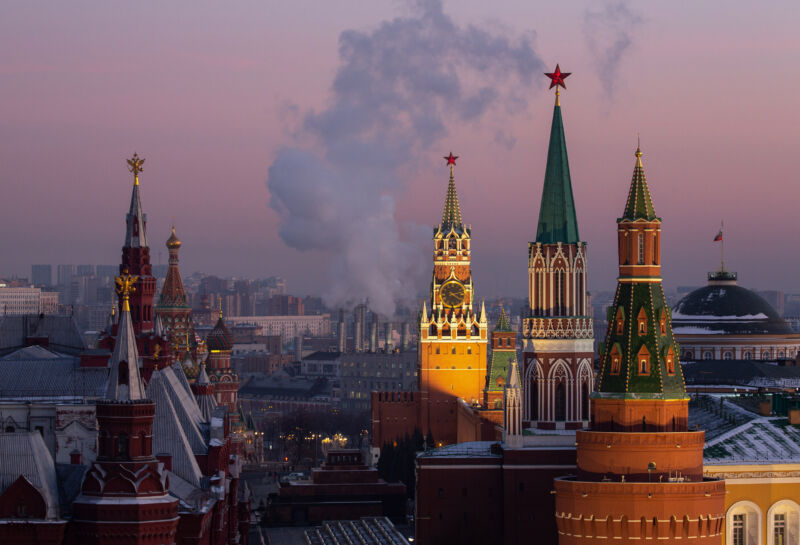

Russia tried to spread dangerous lies about Pfizer vaccine, France suspects
source link: https://arstechnica.com/science/2021/05/russia-suspected-of-peddling-anti-pfizer-vaccine-lies-to-french-bloggers/
Go to the source link to view the article. You can view the picture content, updated content and better typesetting reading experience. If the link is broken, please click the button below to view the snapshot at that time.

influencing influencers —
Russia tried to spread dangerous lies about Pfizer vaccine, France suspects
French officials likened the lies to campaigns run by Russia's Internet Research Agency.
Beth Mole - 5/26/2021, 7:20 PM

French authorities are investigating whether the Russian government is behind an effort to spread dangerous lies about Pfizer-BioNTech’s COVID-19 vaccine as part of a disinformation campaign peddled to French bloggers and influencers.
In recent days, several French influencers have publicly noted receiving partnership proposals from a dodgy agency, called Fazze, over email or social media. The proposals, written in broken English, offered enticing lumps of money if the influencers spread entirely false claims and doubts about COVID-19 vaccines. Among the proposed claims is the dangerous falsehood that people who received the Pfizer-BioNTech vaccine have a death rate three times higher than those who received the vaccine by AstraZeneca.
French news outlet Numerama obtained a copy of one of the emailed offers, which directed influencers to “Tell that mainstream media ignores this theme and you decided to share it with your subscriber [sic].” The offer also said to “put a question like ‘Why some governments actively purchasing Pfizer vaccine, which is dangerous to health of the people[sic]?’” The offer directed influencers to end their messages by encouraging subscribers to “draw their own conclusions.”
French influencer Léo Grasset, who runs the DirtyBiology YouTube account with nearly 1.2 million subscribers, reported on Twitter that the “client” wants to remain “incognito” and that influencers who took the offer were asked to hide the sponsorship. The French medical blogger known as “Et ça se dit Médecin” said on Twitter that he was offered 2,000 euros (nearly $2,500) to run the anti-Pfizer campaign. Some German influencers have also reported receiving the same or similar offers.
AdvertisementGrasset and others who went public with the offer expressed disgust and warned their followers to beware of any such disinformation from anyone else they followed.
Russian “disgrace”
According to a report by The Wall Street Journal, French counterintelligence authorities are now looking into whether the Kremlin is behind the offers. An unnamed security official who spoke with the Journal likened the offers to campaigns run by Russia's Internet Research Agency, which US authorities have said was behind interference with the 2016 presidential election.
The Guardian reported that Fazze’s website had previously listed its address as 5 Percy Street in London, but the company isn’t registered in the UK, and its website no longer includes an address. Fazze was, however, referenced on a Russian employment website, according to the Journal. There, it was described as a subsidiary of Moscow-based marketing agency AdNow. Now-deleted LinkedIn profiles of Fazze employees listed Russian schools under education.
The false claims from Fazze are also strikingly similar to those from the official Sputnik V Twitter account. The account is thought to be run by the Russian Direct Investment Fund, the country’s sovereign wealth fund that financially backed development of Sputnik V. The account has labeled criticism of its vaccine (and the lack of transparency around it) as "fake news" on several occasions and accused skeptical regulators of "sabotage." And, in recent weeks, it has shared antivaccine propaganda and other misinformation about rival COVID-19 vaccines, particularly Pfizer’s.
On April 25, for instance, Sputnik V tweeted the false claim that “Pfizer has x32 higher death rate, and x6 higher infection rate than Sputnik V.” Days later it tweeted that countries “independent enough” to offer “not only Western but also Russian and Chinese vaccines” are better off. On May 23, the account was back at it—retweeting false information about death rates and stoking doubts about the safety of mRNA vaccines, like Pfizer's.
In a post last month, notable pharmaceutical blogger Derek Lowe lambasted Russia’s behavior on Twitter. Not mincing words, Lowe wrote simply: “These claims are bullshit. Posting them is a disgrace” (emphasis his).
Recommend
About Joyk
Aggregate valuable and interesting links.
Joyk means Joy of geeK